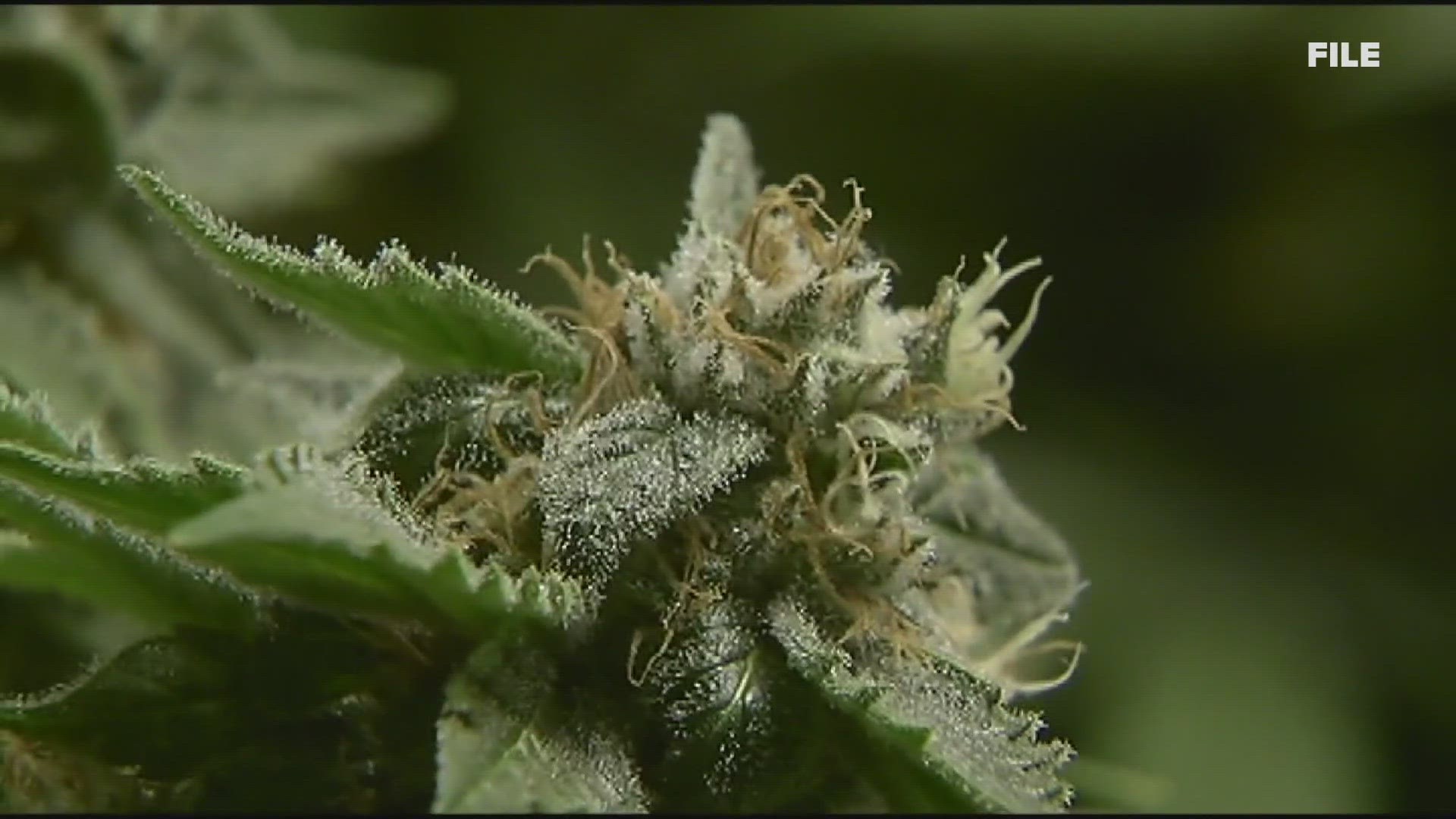BOSTON — People convicted of misdemeanor marijuana possession charged in Massachusetts could see their records forgiven under an executive action announced Wednesday by Gov. Maura Healey.
If approved, the pardons will apply to all adult Massachusetts state court misdemeanor convictions before March 13, 2024, for possession of marijuana or “Class D substance." Most people will not need to take any action to have their criminal records updated, according to the Democrat and former state attorney general.
Healey described the pardons as the most sweeping by a governor since President Joe Biden pardoned federal marijuana possession convictions and called on governors to follow suit.
A pardon essentially acts as forgiveness initiated by the governor for a conviction. It does not automatically seal or expunge criminal records.
“Nobody should face barriers to getting a job, housing or an education because of an old misdemeanor marijuana conviction that they would not be charged for today,” Healey said in a written statement, adding that she's committed to using clemency ”to advance fairness and equity in the criminal justice system."
There were close to 69,000 civil or criminal violations for marijuana possession issued in Massachusetts from 2000 through 2013, according to a report by the Cannabis Control Commission, the panel charged with administering the legal cannabis market in Massachusetts.
The administration estimated the pardons announced Wednesday could end up benefitting hundreds of thousands of people.
The pardons do not apply to other marijuana-related convictions such as possession of marijuana with intent to distribute, distribution, trafficking, or operating a motor vehicle under the influence or convictions from jurisdictions outside Massachusetts, including federal court, according to the administration.
The pardon only becomes effective if the Governor’s Council approves Healey's decision. Pardons would become effective immediately after the council votes, although it would take time to update criminal records.
In 2016, Massachusetts voters approved a question legalizing pot, the same year voters in California and Nevada also legalized recreational marijuana.
In the years since 2016, a bustling legal pot industry has sprouted up in Massachusetts, even as the drug remains illegal at the federal level.
In December, Biden pardoned thousands of people who had been convicted of the use and simple possession of marijuana on federal lands and in the District of Columbia.
The White House said at the time that Biden’s latest round of executive clemencies was meant to rectify racial disparities in the justice system. Biden had said his actions would help make the “promise of equal justice a reality.”
December’s action was meant to build on a similar round of pardons issued just before the 2022 midterm elections of those convicted of simple possession on federal lands.
At the time, Biden called on governors to issue similar pardons for those convicted of state marijuana offenses, which reflect the vast majority of marijuana possession cases.
As a Democratic candidate for governor in 2022, Healey indicated that she would heed Biden’s call.
Other states have made similar moves.
Rhode Island Gov. Dan McKee signed legislation in 2022 legalizing and regulating recreational marijuana and providing for the automatic expungement of prior marijuana possession charges.
In 2022, Missouri voters approved a constitutional amendment legalizing marijuana and calling for the expungement of records of past arrests and convictions for nonviolent marijuana offenses, except for selling to minors or driving under the influence.
Also in 2022, Connecticut Gov. Ned Lamont announced thousands of residents convicted of cannabis possession would have their records cleared using an automated erasure method. Records in about 44,000 cases would be fully or partially erased.

